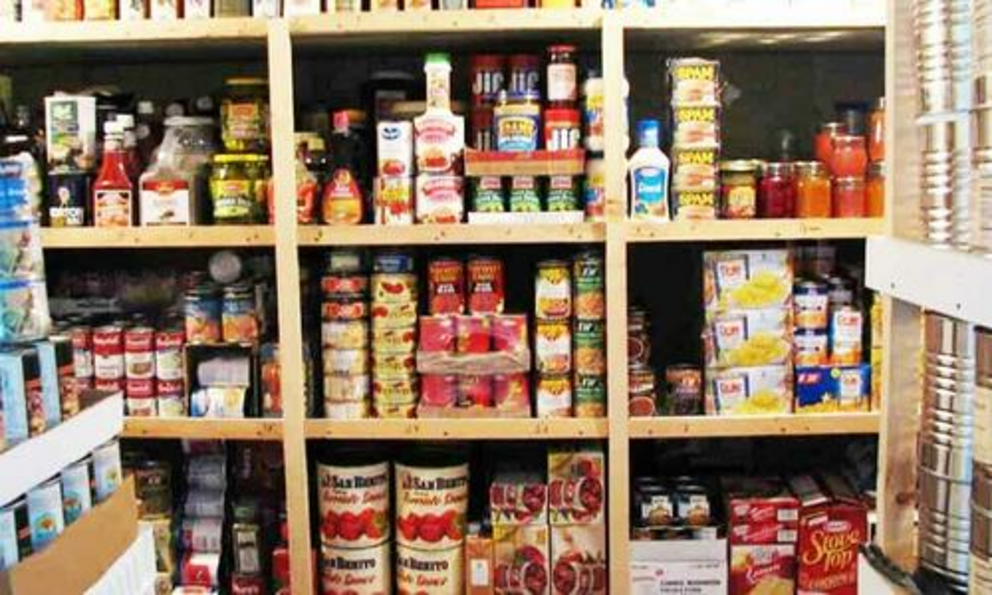"Not going to happen to me again" - prepping goes mainstream in post-COVID era
Consumer psychology radically changed during the early days of the virus pandemic as shortages at supermarkets emerged. Bulk-buying habits were never a thing with the modern consumer in a pre-COVID world, but now 'prepping' has gone mainstream two years since the beginning of the virus pandemic as supply chains remain snarled and food inflation is out-of-control. Many have discovered: be prepared or be hungry.
The pandemic was an eye-opener for tens of millions of consumers who learned the government and big corporations wouldn't take care of them when things go south. Even our elected officials were nowhere to be found in the early days of the pandemic when people panic hoarded food at supermarkets and fought over toilet paper in a 'free for all battle royale'.
WSJ interviewed consumers across the country who've expressed their purchasing habits have changed.
"Bulk-buying habit is expected to stick as people eat more at home, supply remains uncertain and inflation rears up. Retailers and producers are shifting operations as a result," WSJ said.
Alexis Abell, a 41yo mother of five, buys in bulk out of fear of economic uncertainty.
"I don't want to be in a position again where I can't get something," Abell said, who was laid off in 2020 and decided not to return to work. Her household spends about 25% more a week on food and staples versus a couple of years ago.
"The stimulus money is gone, but we've gotten used to having more on hand and I'm cooking more at home, so I expect this to continue," she said.
Many people expanded their pantries during the pandemic, bought freezers, and made space for non-perishables. WSJ calls "bulk shopping" "hoarding," though it's not and instead should be considered a form of prepping.
Bob Nolan, senior vice president of Demand Science at food giant Conagra Brands Inc, has said consumers have "made permanent changes" after they experienced the "harsh realities of pandemic shortages."
"They didn't just stock up that week, but they said to themselves, even if subconsciously, 'That's not going to happen to me again,'" Nolan said.
Research firm IRI, which tracks consumption of household goods, confirms households are transforming into preppers as their average annual growth in sales by volume of food and beverages was 3% in 2020 and 2021, compared with just 0.5% average yearly growth for that last decade. IRI said consumers want larger package sizes.
"Even if somebody waves a magic wand and makes Covid go away completely, we still expect elevated consumption in the home because people are accustomed to working from home, and hybrid work is here to stay," said Krishnakumar Davey, president of client engagement at IRI.
It's human nature to be prepared. Take, for instance, the "Silent Generation" and "Boomers" who either lived through the 1930s Great Depression or were raised by parents from that period learned to keep a large pantry of food and save almost everything they had due to socio-economic uncertainties. Scarcity is terrifying and can easily sway an entire generation of folks, such as "Millennials" and "Generation Z," who were accustomed to an on-demand society that abruptly came to a halt during the pandemic. Younger consumers were forever changed as their thoughts, beliefs, feelings, and perceptions of the economy changed during the pandemic. Thus what we're observing today is that consumers are becoming preppers.
Megan Crozier, Sam's chief merchant, said most new Sam's Club memberships in the third quarter of 2021 had been millennial households.
Another variable pushing younger households into prepping is the hottest consumer prices in four decades. Consumers have noticed prices are going higher and higher for some foods every week. Global food prices are at a decade high and could easily reach a new high as early as this spring. People are stocking up on food because the product could either be unavailable next week or cost 20% more.
Prepping is become mainstream and not as much "fringe" as it was perceived just a few years ago. This is a symptom of people losing trust in government and corporations. The evolution of thought for consumers is to break away from the matrix, buy land in a rural community with a decent internet connection and grow food and hunt.

